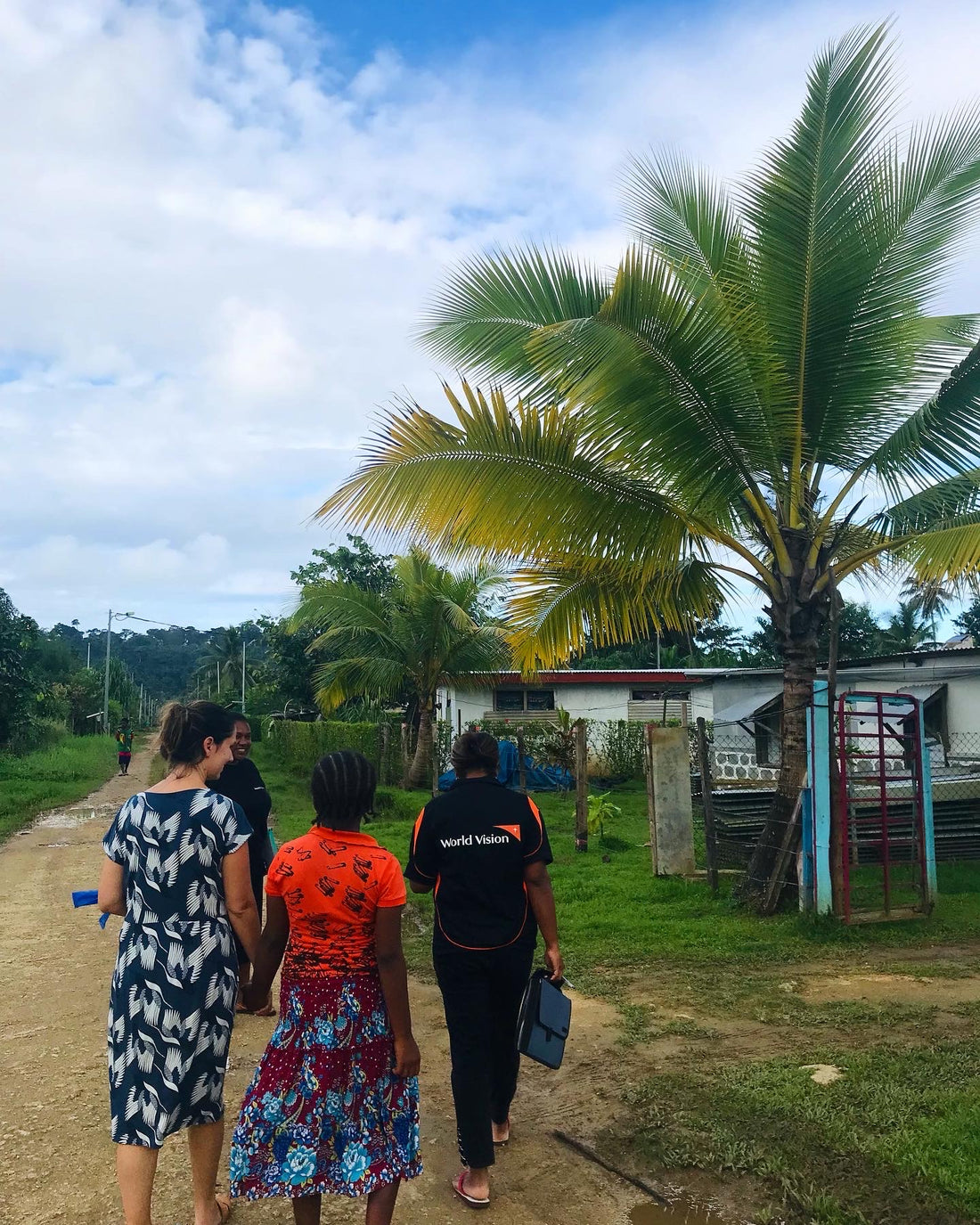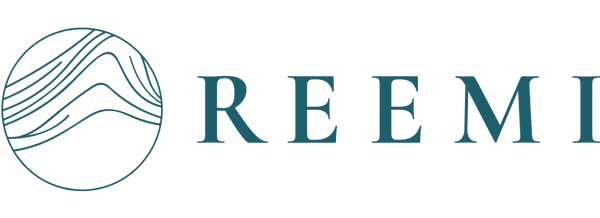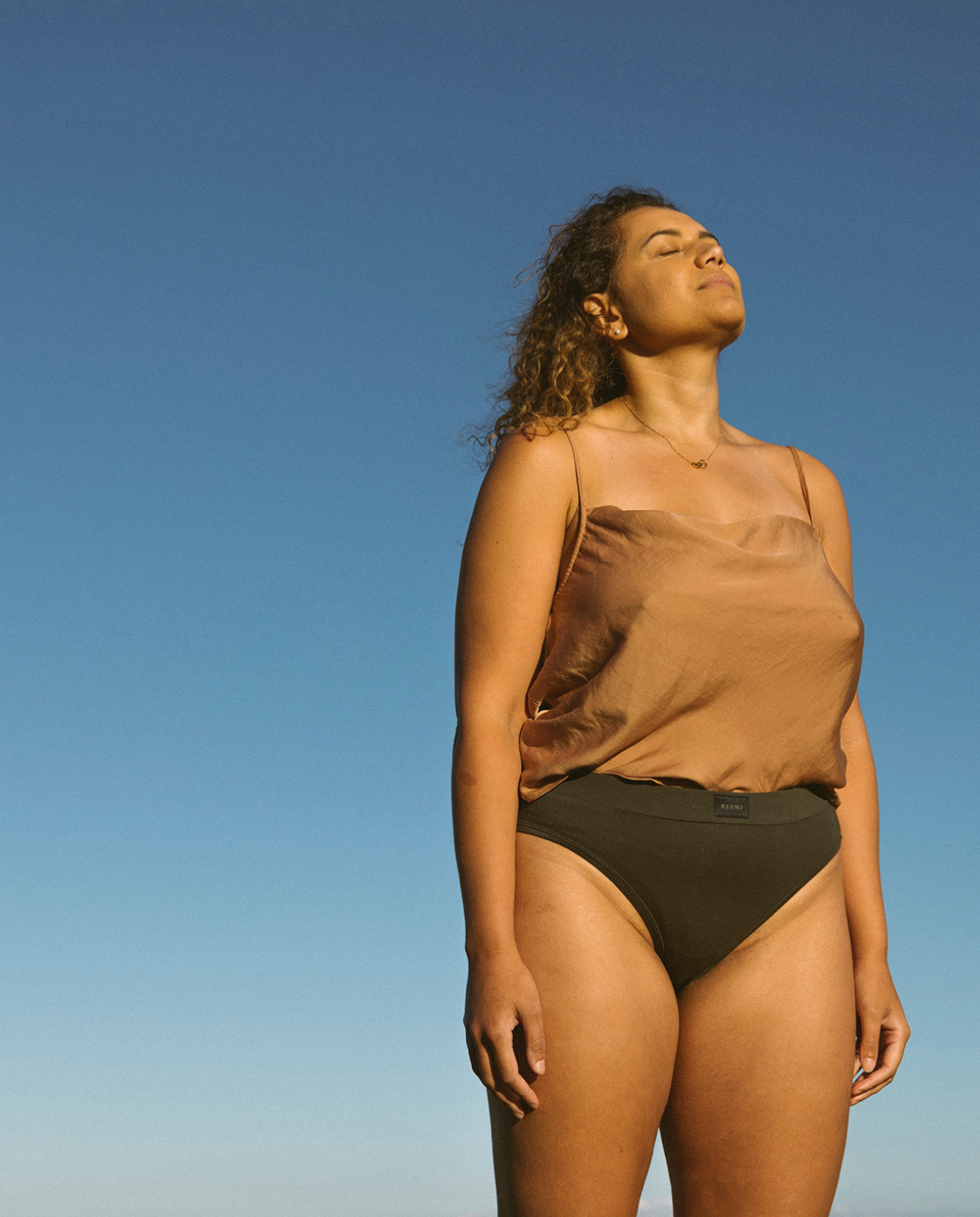
Reemi & World Vision
Share
For most of us, we think of Vanuatu as a tropical paradise; a string of 80+ islands in the South Pacific with a population of around 315,000 people. A land covered in tropical rainforests, mountainous terrain, coastal beaches with an abundance of sea life, high rainfall and plenty of sunshine. However, it is also known as one of the most vulnerable countries in the world to the impacts of climate change and natural disasters.
Category 5 cyclones such as 2015 Cyclone Pam and 2020 Cyclone Harold have caused devastating effects on Vanuatu’s crops, livelihoods and everyday life as fatal cyclones of such intensity increase in frequency.
This year we’ve partnered with World Vision on a small menstrual hygiene pilot with girls with disabilities on several of these islands impacted by Cyclone Harold. There is very little support for caregivers in places like Vanuatu and the carers would often admit to getting frustrated at the girls. For example, the girls would take pads off in public places because they were irritating or uncomfortable. Or they wouldn’t take them out of the house for fear of leaks whilst menstruating. Sometimes, they would lock them inside the home when they had to go to town to get supplies. And in the worst case scenarios, they would need to keep an extra special eye on the girls whilst ovulating for fear of them being taken advantage of and becoming pregnant.
Reemi went over at the end of August to see first-hand how our pilot was received on the ground and understand more about the work World Vision does.
Our days were spent driving to remote villages delivering period products, interviewing families and young girls on many aspects of menstrual hygiene and collecting data on current practices on the island of Santo, whilst other World Vision team members were off on boats to islands accessible only via water.
Often, we can forget the beauty found in humanitarian work and we paint a picture of desolation. But there is so much beauty in the villages, the immaculate thatched roof, the children playing together, little boys running around with papaya dripping down their faces, eating the fruit from cacao pods and tiny tropical bananas, the makeshift volleyball grounds, soccer fields and men out harvesting kava at sunset.
Sitting on the floors of homes we were welcomed into, the World Vision team went through training sessions with the caregivers, asking questions about periods. The overall message from all of this menstrual hygiene work is to convey that menstruation is normal and healthy and that we all need love and care on our periods, including those with disabilities that may have less knowledge or understanding of what is happening for them.
In this setting, something as simple as period underwear actually proved to be incredibly helpful. There are many stories of reusable pads being distributed in the humanitarian world and being used for all manner of uses such as kitchen pot holders on tables and various other uses as they are not quite as intuitive, but underwear is more intuitive.

What we found was that girls were able to be taken out of the house whilst menstruating because the fear of leaks was significantly lessened. There was no need to ask around the village every month for any extra money to go and purchase pads for the girls. In the next emergency/cyclone families will be prepared and have period products to take with them so the girls will never be caught out. The issue of disposal and waste of disposable products can also be a concern. Vanuatu is a carbon negative country with a single-use plastic ban and they take rubbish very seriously because as a small nation of islands they simply have to.
Too often people with disabilities of any sort have very little voice and can be significantly neglected in society. The research around girls with disabilities and menstruation is only just being delved into with more depth thanks to some of the work World Vision have been doing with London School of Tropical Medicine. We’ve discovered that something as simple as period underwear can actually have a significant impact on those with disabilities in the Pacific and the ease with which their caregivers cater to their needs.
In many cultures menstruation can be seen as dirty or ostracising and there’s a lot of work to be done to educate men and women, and boys and girls, globally towards a different and more hopeful narrative. At Reemi we’re trying to create culturally-appropriate menstrual solutions for the most complex circumstances and working with World Vision on this partnership was most definitely this and if anything emphasised the empathetic, gentle nature needed in this line of work that we’ve set out to do.

